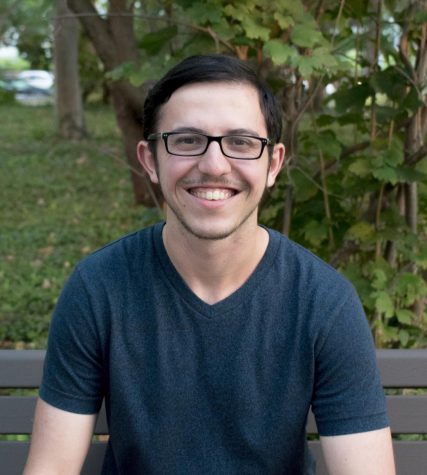Danny Miles: Why socialism is not a dirty word
A little while ago, I made an innocuous Facebook post, urging people I know to vote for Bernie Sanders. It was a relatively flippant post; at the time, I didn’t really give it a second thought. The next day, however, I saw a comment on that post from a friend’s father that simply read, “Socialism?” I nearly made an equally concise response, “Socialism!” but something stopped me from hitting the ‘Enter’ key. I thought about where that comment had come from, about the kind of associations this man had with the word “socialism.” I thought about what that word “socialism” meant in my mind and about how there is such an enormous gap between our perceptions of that idea. Why is it that the idea of socialism is such a repugnant one to so many Americans? I would actually argue that pushing our country in a more socialist direction would help many of our current struggles and would better our country as a whole.
It doesn’t take a genius to see how the negative perceptions of socialism formed in the generations before us. Through a mix of effective propaganda and the atrocities of Communist regimes around the world, our parents and grandparents saw the horrors of socialism every day. From Mao Zedong’s People’s Republic of China to Stalin’s Soviet Union, it was clear to Case Western Reserve University observers that capitalism was the good and just system, while socialism was the first step toward dictatorship and totalitarianism. Or, at least, that’s what many of the people from that generation would tell you.
Fast forward to today’s premier socialist countries, and one will see a very different story. Countries that are considered socialist by the average American include Finland (which boasts the highest standard of living in the world), Canada (which, according to the UN, is one of the ten best countries to live in), Great Britain, and Australia (Melbourne, a city in Australia, is ranked as the most livable city in the world). On an interesting note to the medical students at CWRU, all of these countries sport socialized medicine and all are considered to have wonderful health care systems, despite—or perhaps because of—this fact. None of these countries, by even the largest stretch of the imagination, can be considered a dictatorship. All can be considered socialist.
I think that the crux of the issue is that the word “socialism” itself is still tainted from the Communist regimes of years past. Our parents and grandparents—and, indeed, many of us—are still transfixed on this idea that socialism is a one-way ticket to the downfall of society. Alternatively they may believe that socialism eliminates competition. This simply isn’t the case. Socialism, by definition, just implies that the government has a hand in the workings of the national market. This isn’t a war on the free market or anything of the sort; the kind of socialism that Bernie Sanders and other liberals are pushing is one of equality, one of justice. It’s the kind of socialism that prevents (or, at least, mitigates) phenomena like big pharma, where rich international corporations control the flow of medicine, or the dominating control the largest insurance companies have over the market. In fact one could say that this isn’t your grandma’s socialism. Sorry, I couldn’t help it. In fact many programs of the United States are socialist in nature, such as Social Security, Medicare and the national post office system.
I thought about all of this, and I never did hit the Enter key on that Facebook post. Instead I wrote this article. Socialism isn’t a dirty word, sir. It’s the way we need to be looking if we want to start to fix this country’s flaws, numerous as they may be. Let’s end private monopolies on utilities, insurance, medicine and all these other things that Americans need to live happy and successful lives. The ideal free market is just that; it’s an ideal. Socialism is the only way we can make this work, and I hope enough people can see that come election day.
Danny Miles is a second-year student.

Danny Miles is a fourth-year computer science major with a Japanese minor. Besides The Observer, he writes for The Athenian and spends his Saturdays playing...

